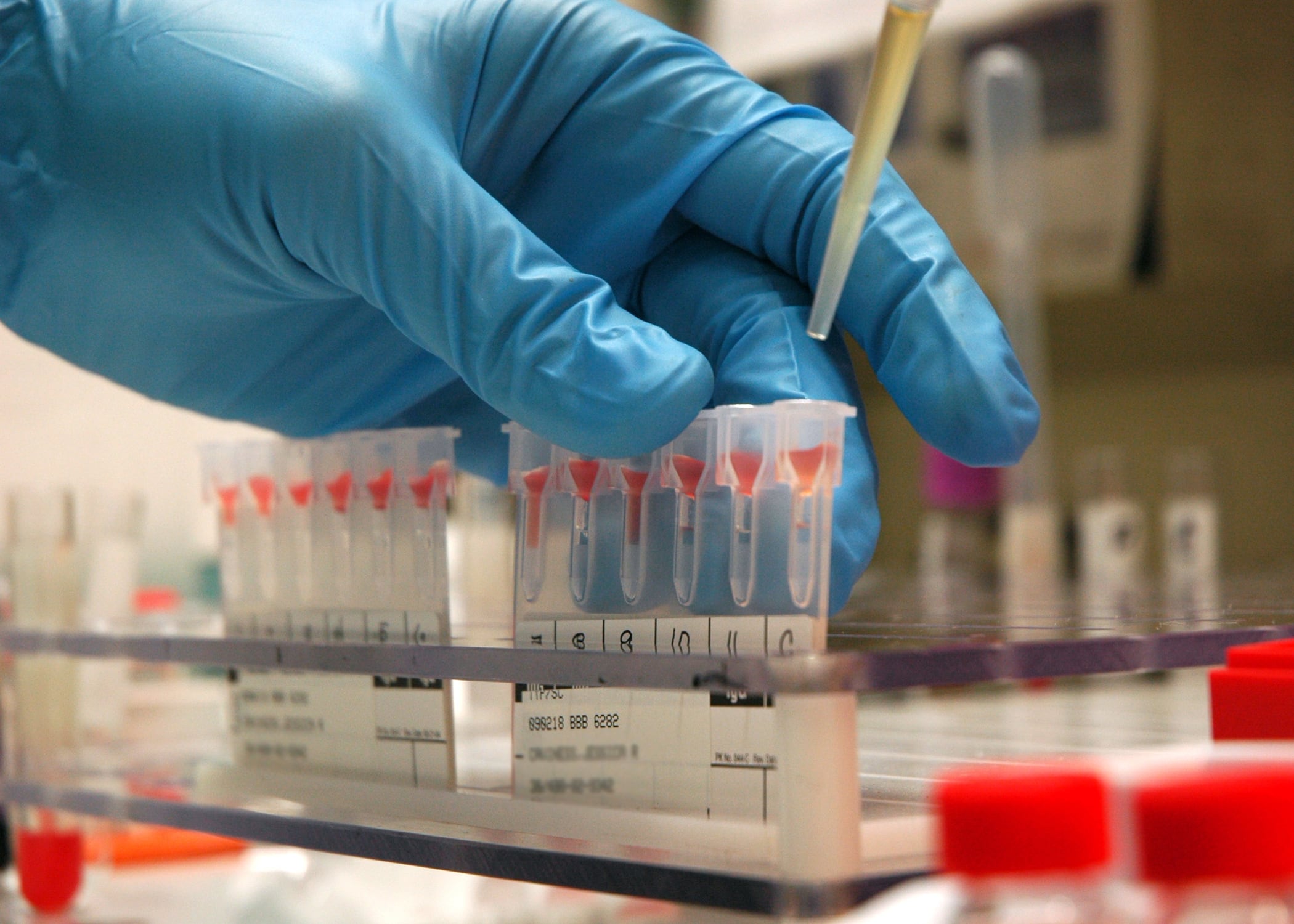The Corps is encouraging Marines to donate blood and plasma to help develop a potential new treatment for people with moderate to severe cases of COVID-19, according to a Marine administrative message released Thursday.
The donated plasma will be used to help develop a “convalescent plasma” treatment, which uses the plasma from people who have recovered from COVID-19 to help boost immune systems of those fighting the disease.
The Department of Defense has issued a goal to collect 10,000 units of convalescent plasma by Sept. 30, “to sustain the readiness of the Force,” the MARADMIN said.
As part of the Corps’ effort, representatives from the Armed Service Blood Program Blood Donation Centers will be contacting Marine Corps beneficiaries who have tested positive for the virus. The Corps also will hold several blood drives where all donations will be screened for the virus, the MARADMIN added.
If COVID-19 antibodies are found in the blood, the donor will not be forced into quarantine, the message said. The choice to donate blood or plasma is completely voluntary, the Marine Corps said.
When a body is infected with a disease it has never encountered before it could take up to two weeks to develop the antibodies needed to fight the infection, Dr. Katia Koelle, a viral evolutionary biologist, told Marine Corps Times in a Thursday phone call.
“If you can take that plasma from someone who had that infection and give it to someone who hasn’t been infected, basically what you’re giving them is the special ingredient to fight the virus,” Koelle said.
The treatment has not been fully approved by the Food and Drug Administration as a treatment for COVID-19, but has been authorized as an “investigational treatment” exploring how effective the treatment is for those fighting the potentially deadly disease.
Since the treatment is still being tested, there are a lot of unknowns about best practices on how to use it or even if it will be effective, Dr. Ashley St. John, an assistant professor with the emerging infectious diseases program at Duke-NUS University.
“We don’t have a true answer yet whether it is effective,” St. John told Marine Corps Times in a Thursday phone call.
“But generally we think of something like this as working during what we call the ‘acute phase’ of disease so right when you’re sick, and you have a virus to either help you clear the virus, faster, or to prevent it from reaching the highest level,” she said.
For more information, the Corps encourages personnel to call Headquarters Marine Corps’ Health Services at (703) 604-4602 or email HQMC_MEDICAL@usmc.mil.
Though the therapy is still in the testing phase, St. John said studies on convalescent plasma can provide the medical world a lot of insight on how to actually fight the disease.
“It’s very generous of people to donate their plasma for these types of studies and it is extremely important to test,” St. John said.
“Seeing how people respond to convalescent plasma therapies can also give us some information from a scientific standpoint, on the kinds of responses we need to generate in vaccine,” she added.




